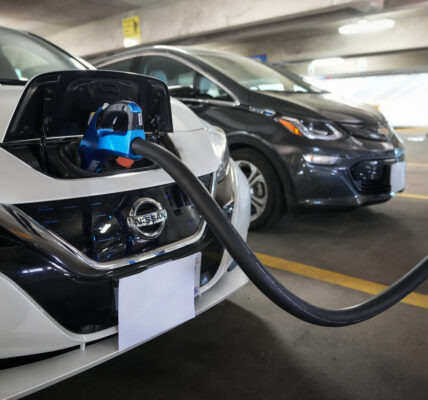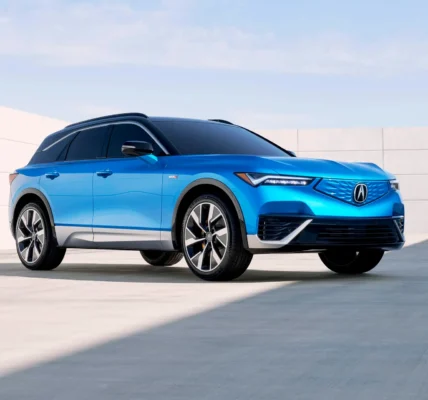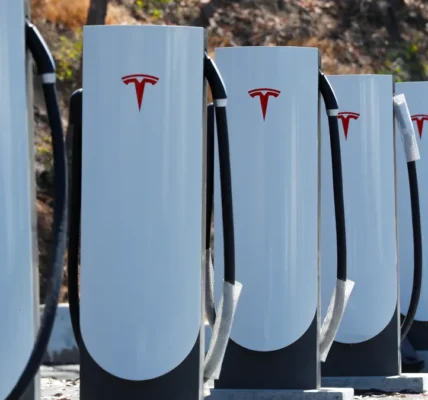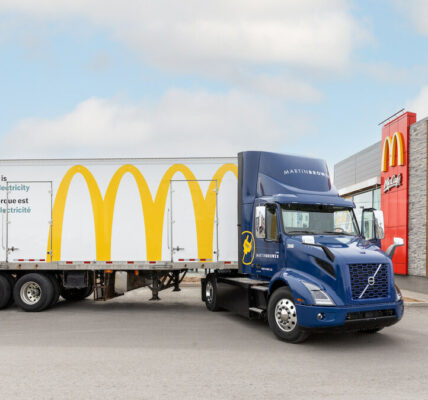The US government has announced new regulations that aim to keep Chinese batteries out of cars sold in the United States, a move that could push up the price of electric vehicles for American drivers.
The Biden administration on Friday proposed rules that would cut subsidies for vehicles that contain Chinese-made battery components, or are found to be produced by a company with strong ties to the Chinese government.
China is the world’s leader in EV battery production, dominating almost “every stage of the EV battery supply chain,” according to a 2023 report by the International Energy Agency (IEA).
Starting next month, following a 30-day period for public comment, vehicles with these components will no longer be eligible for a full $7,500 US tax credit, which allows consumers to save money when buying a new electric car.
That’s because new guidelines from the US Treasury, Internal Revenue Service and Department of Energy prohibit the use of parts made or assembled by what they call “foreign entities of concern” (FEOC). The term refers to companies based in China, Russia, North Korea or Iran, or with at least 25% voting interest, board membership or ownership by a government of one of those countries.
In addition, “beginning in 2025, an eligible clean vehicle may not contain any critical minerals that were extracted, processed, or recycled by a FEOC,” according to the Treasury. Officials said they would temporarily exclude certain battery materials that were difficult to trace so companies could have time to transition.The regulations could reshape automakers’ supply chains. The IEA estimates that two-thirds of global battery cell production is in China, while the United States accounts for approximately just 10%. China also leads the global processing of minerals needed for EV batteries, such as graphite and rare earths. The country has recently curbed exports of such materials, citing a need to protect national security.“
President Biden entered office determined to reverse the decades-long trend of letting jobs and factories go overseas to China,” John Podesta, a senior advisor to the president on clean energy innovation, said in a Treasury statement. “We’re helping ensure that the electric vehicle future will be made in America.”
The 2024 Hyundai Santa Fe is unveiled at the Hyundai press conference at Automobility LA, the media preview day for the LA Auto Show, on November 16, 2023 in Los Angeles, California. (Photo by Robyn Beck / AFP) (Photo by ROBYN BECK/AFP via Getty Images)Soon you’ll be able to buy a Hyundai on AmazonIn a Friday blog post, John Bozzella, the president of industry body Alliance for Automotive Innovation, said the proposal would provide some long-awaited clarity to manufacturers.“
But the EV transition requires nothing short of a complete transformation of the US industrial base. It’s a monumental task that won’t happen overnight,” he wroteThe regulations have already prompted EV market leader Tesla (TSLA) to warn that some of its vehicles may soon get more expensive.
The company’s US website currently states that two versions of its popular Model 3 sedan will see tax credits slashed, from up to $7,500 now to $3,750 in January. The Model Y, which is currently also eligible for the full subsidy, will “likely” face a reduced tax credit after the end of this month, too, according to a notice from the automaker.Tesla is a longtime customer of China’s CATL, the world’s largest EV battery maker. CATL has been caught in a US political firestorm this year for its involvement in an EV battery factory in Michigan being built by Ford (F).Plans for the $3.5 billion facility — which would be run as a wholly owned subsidiary of the US automaker, but churn out batteries using CATL’s technical expertise — were seen as a way for Ford to take advantage of EV tax credits. The carmaker did not immediately respond to a request for comment on Monday on how it would be impacted by the change in regulation.








